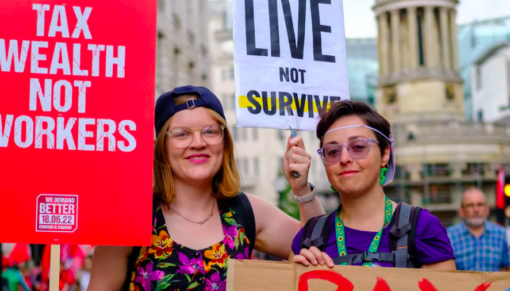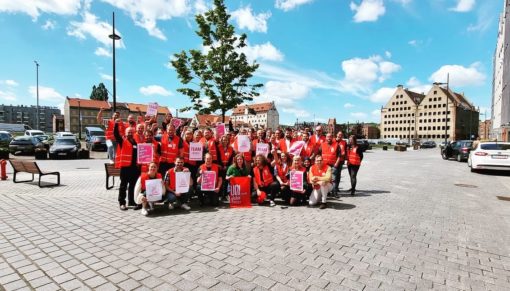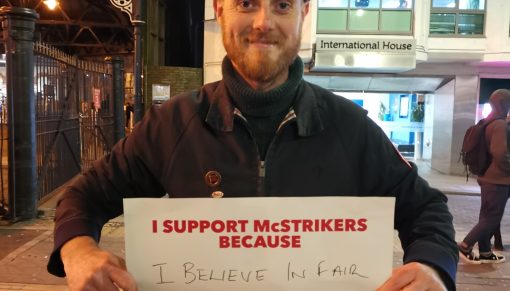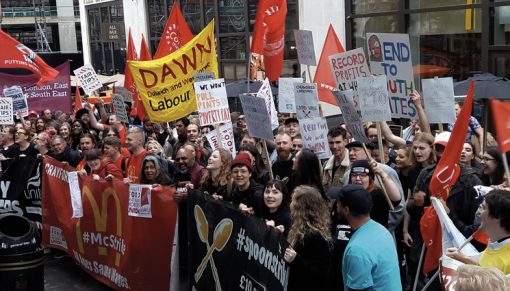We can’t afford this housing policy
October 15 2015 Latest candidate for the title of “mad, bad deed of the day” comes with the news in this morning’s papers (http://www.guardian.co.uk/uk/2013/feb/13/london-council-relocation-benefits-cap) that Camden, on the north side of Central London, will be writing to 761 families – including 900 school age children – in social housing in the borough telling them that when the new caps on benefits are introduced in April, they will no longer be able to afford to live in the borough. Or anywhere else in the South East. Chillingly, the letters will say that the council is looking for alternative, affordable accommodation which is some distance away from where people currently live.
Latest candidate for the title of “mad, bad deed of the day” comes with the news in this morning’s papers (http://www.guardian.co.uk/uk/2013/feb/13/london-council-relocation-benefits-cap) that Camden, on the north side of Central London, will be writing to 761 families – including 900 school age children – in social housing in the borough telling them that when the new caps on benefits are introduced in April, they will no longer be able to afford to live in the borough. Or anywhere else in the South East. Chillingly, the letters will say that the council is looking for alternative, affordable accommodation which is some distance away from where people currently live.
For “some distance” read dozens if not hundreds of miles.
Regular readers of my blogs will have seen me describe the government’s employment and benefits policies as “stupid, cruel and counterproductive” (http://www.cwuyouth.org/view-blog.html?blog_id=295.)
The news from Camden falls right into that bracket.
I have also described the housing benefit cuts as “more Eton mess” (http://www.cwuyouth.org/view-blog.html?blog_id=299.) And I think we can see in this latest development why it’s not just the economics that are wrong, but the politics as well.
The economic view is that we can no longer afford the current regime of housing benefit. The country is in debt and the debt must be repaid quickly. Therefore everything is up for review and cut back and that a lid must be placed on housing benefit levels.
Setting aside the arguments about how, when or if the public sector debt is repaid (which would fill a book on its own), this particular benefit change does not, in the view of myself and many others, make economic sense.
Yes, you may cap benefits, but think of the costs that you generate as a consequence. In this case the majority of the 900 households are families with children. By moving people significant distances, you jeopardise the ability of people to continue in employment, and for children to continue with their education in a stable way.
 The impact on employment may be that the distance that will have to commute takes too long or costs too much. They may not be able to replicate childcare arrangements. And for school-aged children, a disrupted education is widely-held to be an indicator of problems later in life.
The impact on employment may be that the distance that will have to commute takes too long or costs too much. They may not be able to replicate childcare arrangements. And for school-aged children, a disrupted education is widely-held to be an indicator of problems later in life.
So if you disrupt people’s circumstances in this way, the likely result is going to be greater unemployment, disengagement from society/education, loss of revenue to the Exchequer (because people will not have money to spend), and in all likelihood an impact on the NHS because of the very close links between housing and public health.
This is why in straight economic terms I cannot believe this makes sense.
From a political dimension, the nonsenseis equally clear.
 The government, and in particular the Secretary of State, Iain Duncan-Smith, seems to have a view that goes along the lines of “we’ve got to have a new regime in benefits, we want to simply matters and we want to control costs, we know some people may suffer, but that collateral damage is worth it for a greater good”.
The government, and in particular the Secretary of State, Iain Duncan-Smith, seems to have a view that goes along the lines of “we’ve got to have a new regime in benefits, we want to simply matters and we want to control costs, we know some people may suffer, but that collateral damage is worth it for a greater good”.
If that is the view – and I am yet to see anyone say it isn’t – then the impact on people who lose out from this “one size fits all” approach are disproportionately those who are most disadvantaged already. It increases rather than reduces the wealth gap.
And life isn’t based on a “one size fits all” model. The reason that residents in Camden are in such a difficult position is because the nature of our deregulated housing market means that it is one of the most expensive places in the country to live.
But quite apart from the impact on the individuals who have to move, there is also the impact on the part of the country they leave behind.
Britain’s cities and towns need all sorts of people doing all sorts of jobs. Creating ghettos or no-go areas cannot be right for our society. In a system of economic apartheid, everyone ultimately suffers.
As Nye Bevan famously said: “We should try to introduce in our modern villages and towns what was always the lovely feature of English and Welsh villages, where the doctor, the grocer, the butcher and the farm labourer all lived in the same street. I believe that is essential for the full life of citizen… to see the living tapestry of a mixed community.” (http://en.wikipedia.org/wiki/Aneurin_Bevan)
This is as true today as it ever was – as is a large measure of Bevan’s writings.
Young members of the CWU have always been clear about the need for an alternative approach to that of the current government. The justification for saying that the current policies are simply wrong is contained in this sorry saga. We need change.



























































